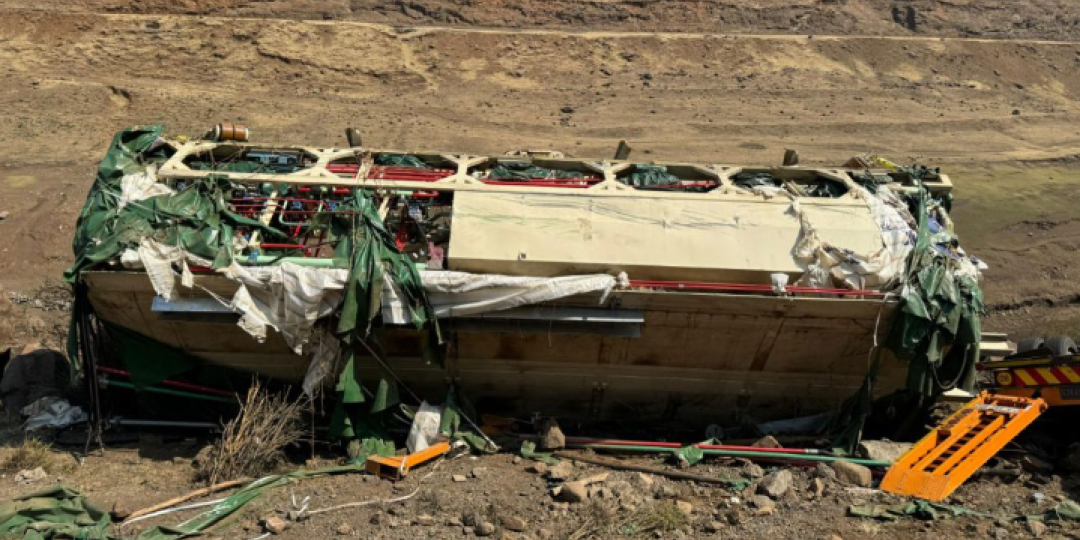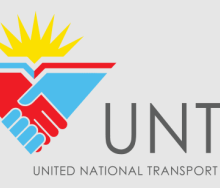Project logistics involved with the Lesotho Highlands Water Project (LHWP) experienced a setback when an abnormal truck carrying a component of a tunnel-boring machine (TBM) towards the Katse Dam in Lesotho overturned near the popular Afriski Mountain Resort.
The TBM was making its way towards a tunnel site at Katse when the accident happened in an area called Liphofung, damaging the entire rig – horse, low-bed trailer and load.
Mpho Brown of the Lesotho Highlands Development Authority said they were assessing the damage and that the extent of the project’s delay would be duly communicated to industry.
He told Lesotho daily The Reporter that the TBM component would undergo assessment to determine the extent of the damage before determination was made on whether it would impact the TBM programme and timelines.
The authority said it was saddened by the incident and was committed to ensuring the highest health and safety standards on all LHWP construction activities on roads at the site.
“Paramedics attended to the driver at the accident site and he was transferred to the out-patient department of the (nearby) Mamohau Hospital,” Brown told The Reporter.
“The driver’s next of kin were notified of the incident and he has subsequently been discharged.”
The incident happened mere days after the TBM arrived in the kingdom on September 4.
It is intended to excavate a 38-kilometre-long section called the Polihali Transfer Tunnel.
Delays to excavating the 5.2-metre-diameter tunnel are expected to push back even further the anticipated date for the crucial delivery of water to Gauteng by Katse.
Whereas initially the LHWP was supposed to alleviate the province’s water woes by 2023, the new expected delivery date for the increased water supply is early 2026.
Prior to the weekend’s accident, it had also been reported that water supply to Gauteng from Katse would only come on stream in 2027 – a delay of some eight years on the project’s initial delivery dateline.
The tunnel will facilitate the transfer of water by gravity from the Polihali Reservoir to the Katse Reservoir. This connection is vital for enhancing water supply to the Gauteng region of South Africa, which relies heavily on this water system for both domestic and industrial use. The increased capacity from the Polihali reservoir is expected to significantly boost the volume of water available in the Katse Dam, thereby improving overall water management in the region.
In addition to its role in water supply, the infrastructure associated with the Polihali Transfer Tunnel will support hydropower generation. The LHWP Phase II includes plans for hydropower facilities, which will utilise the water transferred through this tunnel to generate electricity, contributing to Lesotho's energy needs and economic development.













